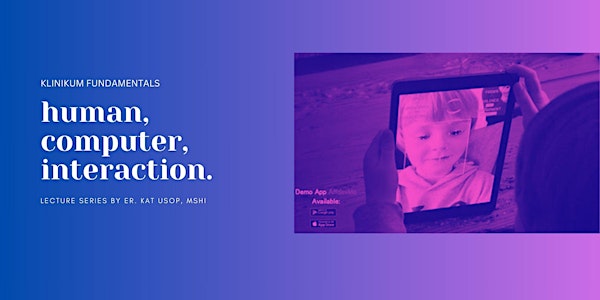This VIRTUAL lecture on Human-Computer Interaction (HCI) provides a comprehensive introduction to the principles, theories, and practices that govern the design, evaluation, and implementation of interactive computing systems. The lecture aims to equip students with a deep understanding of the relationship between humans and computers, focusing on user experience, usability, and user-centered design.
OUTLINE
1. Introduction to HCI
- Definition and scope of HCI
- Historical evolution and significance of HCI
- Interdisciplinary nature of HCI
2. Human Factors and Cognitive Psychology
- Human capabilities, limitations, and cognitive processes
- Mental models, perception, and attention
- Ergonomics and physical interaction
3. User Interface Design Principles
- Design principles and guidelines
- Visual design and aesthetics
- Interaction paradigms and metaphors
4. Usability Engineering
5. User-Centered Design Process
6. Interaction Design and Techniques
7. Accessibility and Inclusive Design
8. Evaluation and User Experience
9. Emerging Trends and Technologies
- Mobile and ubiquitous computing
- Virtual and augmented reality
- Natural language processing and conversational interfaces
Upon completion of this lecture, students will be able to:
1. Define and explain the fundamental concepts and principles of Human-Computer Interaction (HCI).
2. Understand the importance of human factors, cognitive psychology, and user-centered design in HCI.
3. Apply usability engineering methods and techniques to evaluate and improve interactive computing systems.
4. Design and develop user-friendly and accessible interfaces using HCI design principles and guidelines.
5. Evaluate and measure user experience (UX) to enhance user satisfaction, engagement, and interaction quality.
6. Recognize and adapt to emerging trends and technologies in HCI to address evolving user needs and preferences.
Who is best for?
Undergraduate/Graduate students studying:
Computer Science
Information Technology
Design
Psychology
Computer Science
Professionals/Practitioners in the fields of:
Software Development
User Experience Design
Human-Computer Interaction
These individuals may wish to deepen their knowledge and skills in HCI principles and practices. 🎓
The lecture series will be delivered through a combination of LIVE lectures, interactive discussions, case studies, demonstrations, and hands-on exercises. Students will have the opportunity to engage in practical activities, group projects, and assignments to apply and reinforce the concepts and techniques learned throughout the course. happy learning!
Reading appetizers:
X Factor (katusop.com)
@itskatusop
